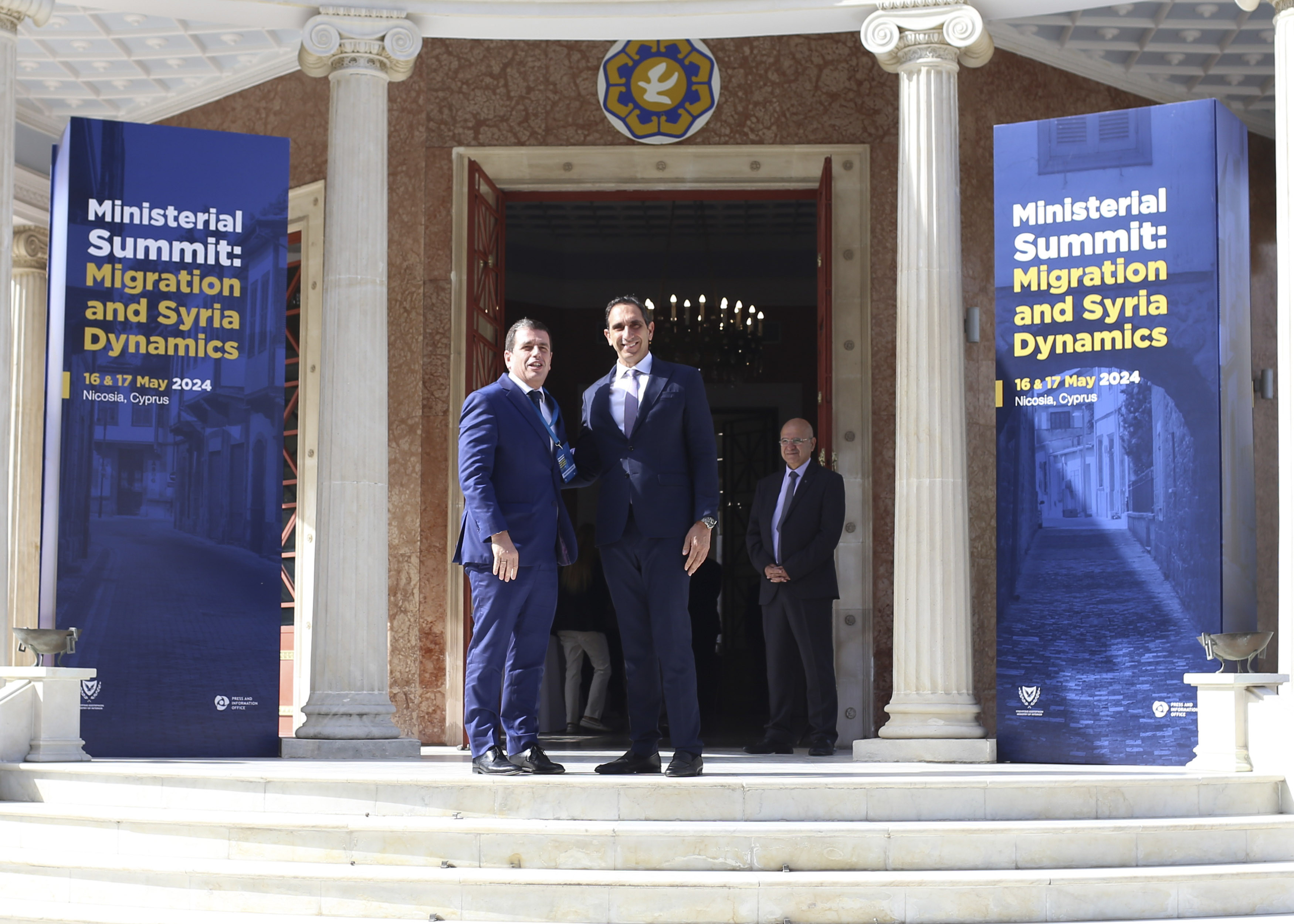Cyprus is “not alone” on the matter of migration, Greek Migration Minister Dimitris Kairidis said on Friday.
Speaking to journalists after an inter-ministerial summit held by representatives of the two countries as well as Austria, the Czech Republic, Denmark, Italy, Malta, and Poland, he said the Greek government “supports the initiatives” put forward by Cyprus.
He also passed comment on Cyprus’ plan to have parts of Syria declared safe to return migrants, saying “this is the beginning of a discussion which should be had informally and with a focus on solutions, and this is what [Cypriot Interior Minister] Constantinos Ioannou represents par excellence.”
He added that he has worked closely with Ioannou many times at European Council summits, and added, “the last thing we need is the naïveties which plagued us in the past and the cries of some populists today.”
He said, “the meeting we held is not politically neutral. We are coming up to the European elections, the issue of migration is extremely sensitive, not only here, but throughout Europe, and what European citizens and our Cypriot brothers are asking of us are realistic solutions.
“This is what Constantinos [Ioannou] and all of us are oriented towards.”
He also touched on the situation in Greece, saying the picture is “improved” compared to the high numbers of people who crossed the Aegean Sea from Turkey between August and October last year.
Flows of irregular migrants have dropped as much as 80 per cent, he said, helped by better cooperation with Turkey.
On the matter of cooperation with other states on the European Union’s periphery, he said, “Egypt is an organised state … and therefore we have possibilities for much better cooperation. In Lebanon, we have the familiar issues of a highly pressurised internal situation, which creates additional complications.”
With this in mind, he said European Commission President Ursula von der Leyen “reacted very quickly” when earlier this month she pledged €1 billion in financial support to aid Lebanon in its efforts to bolster its border control and to combat human trafficking.
“Now, we have to implement it. This shows what I am here for. Cyprus is not alone, nor should it feel alone. Greece is absolutely on its side. We go together.”
Ioannou himself also spoke after the meeting, saying its realisation “proves that the crisis created by increased migration flows is not only southern Europe’s problem.”

He said that such an initiative is “exactly what today’s meeting will conclude, since a group of EU member states will now be able to push in this direction.”
In addition, he spoke about the European Commission’s initiative to “promote legal migration and the attraction of skilled personnel from third countries to meet the needs of national labour markets.”
“The successful implementation of this policy will undoubtedly be beneficial both for maintaining social cohesion and for ensuring our countries’ economic stability,” he said.
In addition, he said those present at the meeting had spoken about the need to “focus on the external dimension” of migration. In other words, to deal with states on the EU’s peripheries.
He said this would entail dealing with countries such as Egypt and Lebanon “in light of recent political developments in the Middle East”.
“Due to their geographical location, these countries bear a disproportionate burden due to the large numbers of migrants on their territories, while they do not have the sufficient means to manage them all satisfactorily,” he said.
He spoke about Lebanon, saying the country is experiencing “social, economic, and political instability” while also housing “approximately two million Syrian nationals … adding to the already difficult situation.”
He said Cyprus has been warning since last year that any potential expansion of the ongoing conflict in Israel could cause issues for Lebanon and that thus “support for Lebanon is imperative”.
“If Lebanon is allowed to collapse, the consequences for the entire EU will be incalculable,” he said.







Click here to change your cookie preferences